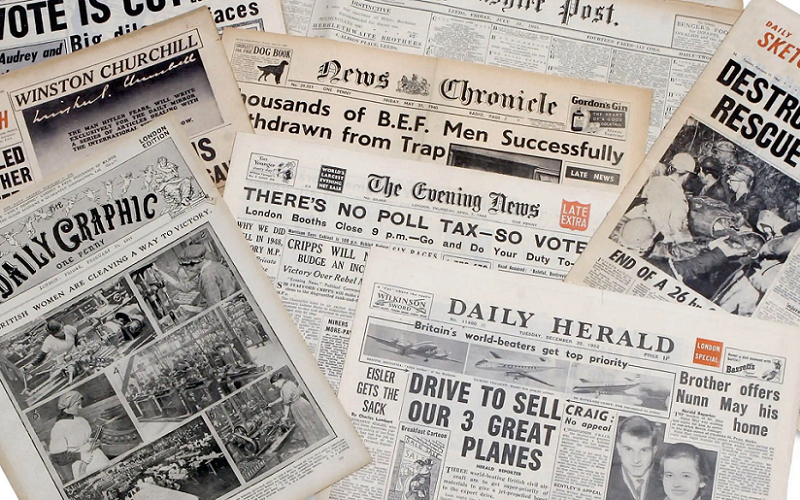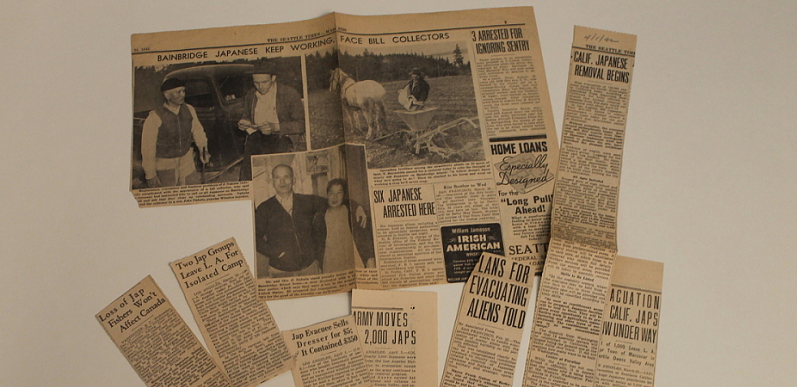
Newspaper archives are a treasure trove for genealogists. From obituaries to marriage announcements, these historical documents hold the keys to uncovering the everyday details and significant events of your ancestors’ lives. Here we take a systematic approach to exploring newspaper archives, describing where to look. what to look for, and how to interpret and organize the information you find.
Contents
Understanding Newspaper Archives
Newspaper archives offer a unique glimpse into the past, capturing everything from major historical events to the minutiae of daily life. By exploring different types of archives, you can uncover a wealth of information about your ancestors.
Types of Newspaper Archives (Local, National, Digital)
Newspaper archives come in various forms, each serving a unique purpose in genealogical research. Local newspapers often provide insight into smaller community events that larger national papers might overlook. National newspapers can help you understand the broader context of the times your ancestors lived in. Digital archives make these resources more accessible than ever, allowing you to search through vast amounts of data from your home computer.
What Can Be Found in Newspaper Archives
The content within newspaper archives can be incredibly diverse, offering more than just front-page stories.
Obituaries
Obituaries are among the most sought-after documents in newspapers for genealogical research. They can provide vital details about a person’s life, family members, and sometimes even their community involvement and profession.
Marriage Announcements
Marriage announcements can offer crucial links between families and provide information on maiden names, which are key to tracing maternal lines in family trees.
Legal Notices
Legal notices include a range of documents such as wills, estate settlements, and land transactions that can reveal a lot about an ancestor’s wealth and property.
News Stories
News stories can place an ancestor within the context of local and national events, giving insights into what life might have been like during their time.
Challenges in Using Newspaper Archives
Despite their value, working with newspaper archives can present challenges. Issues such as incomplete records, poor image quality, and unindexed articles can complicate research efforts. Knowing these hurdles can prepare you to tackle them more effectively as you search for your ancestors.
Preparing for Your Newspaper Archive Search
Before you start searching through newspaper archives, it’s crucial to gather some basic information that will guide your research. A well-prepared search can save you time and increase the likelihood of discovering meaningful details about your ancestors.
Gathering Preliminary Information
Effective research in newspaper archives begins with a solid foundation of preliminary data about the individuals you’re investigating. This information will help you make targeted searches, reducing the volume of irrelevant results [1].
Identifying Names and Possible Aliases
Start by compiling a list of names, including any variations and aliases your ancestors may have used. Women might have used maiden names, married names, or nicknames in different contexts, so consider all possible variations.
Estimating Dates and Locations
Knowing approximate dates of significant events like births, marriages, and deaths, along with the locations of these events, can help narrow down your search to specific newspapers and time periods.
Choosing the Right Tools and Resources
Selecting the right tools and resources is essential for accessing and navigating newspaper archives effectively.
Recommended Digital Archives
Several online databases and digital archives offer access to historical newspapers. Websites like Chronicling America, NewspaperArchive.com, and GenealogyBank are invaluable resources for genealogists.
Libraries and Historical Societies
Do not overlook local libraries and historical societies, which often have collections of microfilmed newspapers not available online. They may also offer access to special databases and expert guidance from experienced staff.

Conducting the Newspaper Archive Search
Once you have prepared adequately, the next step is to begin the actual search through the newspaper archives. This phase involves knowing how to navigate digital tools effectively and understanding the nuances of historical texts.
Accessing Digital Newspaper Archives
Digital archives are the most accessible means for searching old newspapers, providing tools that facilitate quick searches across vast collections.
How to Use Search Filters
Most digital newspaper archives offer various search filters, such as date ranges, geographic locations, and specific newspapers. Utilizing these filters effectively can significantly streamline your search process [2].
Tips for Effective Keyword Searches
Crafting effective keyword searches involves using variations of your ancestor’s name and combining them with other relevant terms like a profession, address, or event. It’s also wise to use quotation marks to search for exact phrases to increase the accuracy of your results.
Reading Between the Lines
As you find potentially relevant articles, it’s important to read and interpret them carefully. Historical newspapers can provide insights that are not immediately apparent.
Interpreting Common Terms and Phrases
Familiarize yourself with common terms and phrases from the era you are researching. This knowledge can help you understand subtle details in articles that may relate to your ancestors.
Contextualizing Information with Historical Events
Understanding the historical context during the time the articles were written can provide deeper insights into the lives of your ancestors and potentially explain their actions and decisions [3].
Handling Physical Archives
If your search extends to physical archives, handling these resources requires a specific approach to preserve their integrity and make the most of your visit.
Precautions and Best Practices
When dealing with physical archives, use gloves if required, handle materials gently, and use appropriate tools like a flat scanner or a camera without flash to capture information.
Making Copies of Relevant Documents
Always make digital or physical copies of the documents you find valuable. This not only helps in preserving the original materials but also aids in your ongoing research, allowing you to analyze the data at home without repeated visits to the archive.
Analyzing and Organizing Your Newspaper Findings
After conducting thorough research and gathering numerous records and clippings, the next crucial step is to analyze and organize these findings. Proper analysis can reveal connections and insights, while organization ensures that your research is accessible and useful for future reference.
Extracting Useful Information
Each piece of data you collect can potentially provide insights into your ancestors’ lives. It’s important to extract and highlight this information in a structured manner.
How to Record Details Effectively
Create a systematic method for recording details from your findings. Use a digital spreadsheet or a specialized genealogy software program to enter information such as names, dates, places, and any relationships or events mentioned in the articles. This allows for easier access and manipulation of data as your research progresses [4].
Examples of Valuable Data Points
Pay attention to specific details such as addresses, occupations, social affiliations, and mentions of relatives. These can lead to new avenues of research or help confirm existing theories about family connections.
Using Findings to Build Your Family Tree
The ultimate goal of gathering this information is to add depth and accuracy to your family tree.
Incorporating Information into Existing Genealogy Software
Integrate the new data into your existing family tree. Most genealogy software allows you to add sources and notes to each entry, which helps in maintaining a record of where each piece of information came from and its relevance.
Linking Newspaper Clippings with Other Records
Compare and contrast your newspaper findings with other historical records like census data, birth certificates, and other documents. This can help validate the information and fill in gaps within your family history narrative.
References
[1] Newspaper Archive
[2] Genealogy Records found in Newspapers
[3] Genealogy: Finding Your Ancestors Online: Newspapers
[4] Chronicling America: Historic American Newspapers

